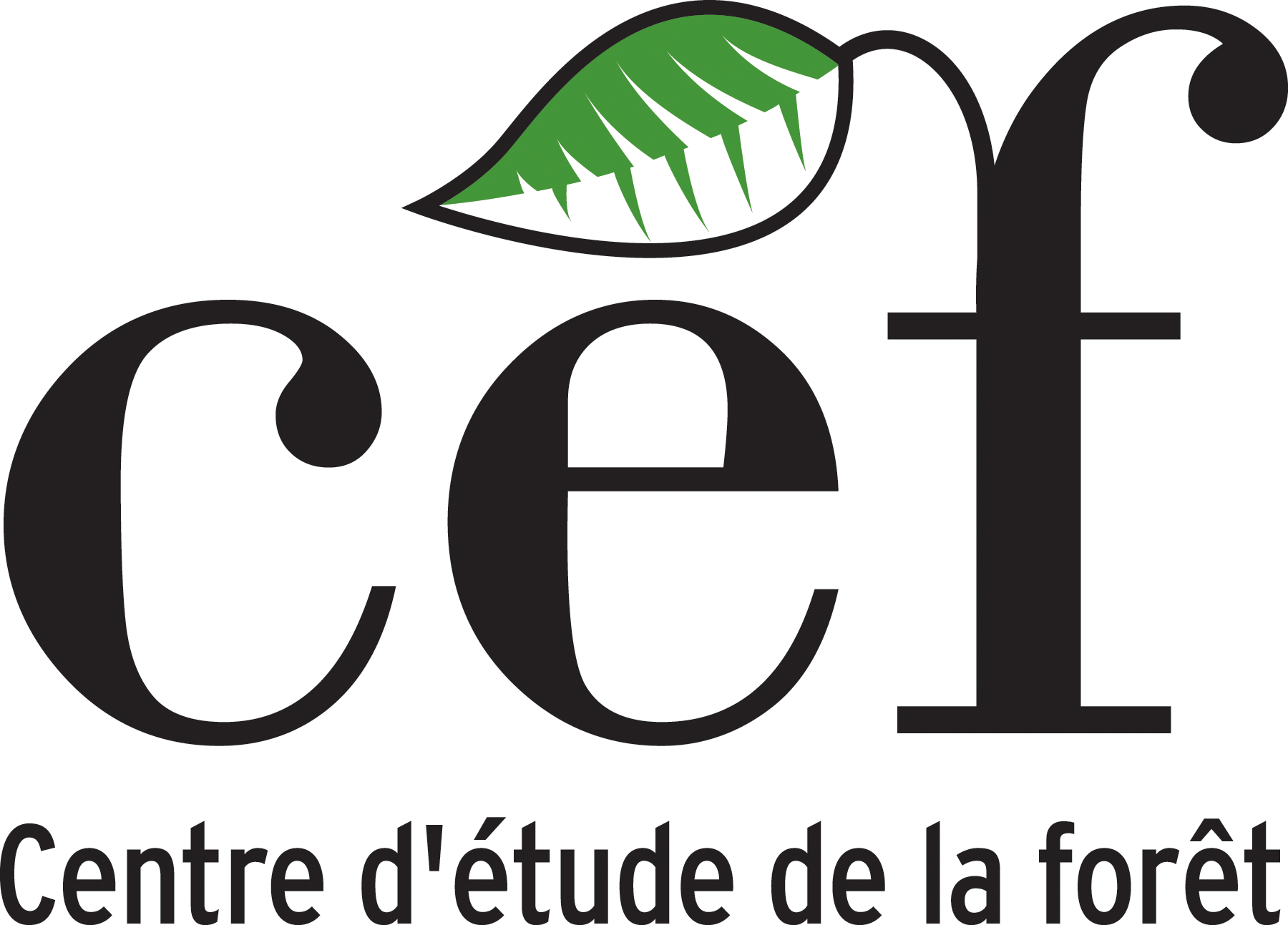Thèses au doctorat
En cours
Françoise Cardou. L'utilisation des traits agrégés d'effet dans la quantification de la qualité écologique des sites.
Laurent Daou. Mesure et definition générale des gradients de fertilité du sol et traits associés.
Chiara Chelo. Écophysiologie des espèces utilisées en révégétation des haldes de sites miniers.
Terminées
Michaël Belluau (2017): Les traits qui prédisent la distribution des espèces herbacées le long des gradients de disponibilité d'eau.
Yuanzhi Li (2017): La structure et la dynamique de l'espace traits le long des gradients spatiaux et temporaux.
Jessy Loranger (2015): Caractérisation de l'abondance et de la distribution de la diversité végétale des prairies françaises à l'aide des traits fonctionnels des végétaux.
Antoine Tardif (2014): Les traits agrégés reliés aux taux de décomposition de la litière: effets de diversité fonctionnelle, taxonomique et environnementale.
Cédric Frenette-Dussault (2012): Gradients environnementaux et écologie fonctionnelle de la végétation aride de Missour (Maroc) et relations avec l'utilisation d'habitat par l'Houbara.
Maurice Aulen (2011): Une approche fonctionnelle pour l'estimation des taux de décomposition racinaires et flux de carbone associés.
Grégory Sonnier (2009) : PhD. Relations entre les traits fonctionnels et la composition et l'abondance relative des communautés végétales.
Denis Vile (2005). PhD. Étude de modélisation statistique des relations entre traits végétatifs et traits reproducteurs chez des espèces végétales issues de milieux contrastés.
Jarcilene Silva de Almeida-Cortez (1997). PhD. La relation entre l'allocation aux composés secondaires et le taux de croissance relatif chez les Asteraceae.
Driss Meziane (1997). PhD. Étude de la variation interspécifique de la vitesse spécifique de croissance et modélisation de l'effet des attributs morphologiques, physiologiques et d'allocation de biomasse.
Mémoires de Maîtrise recherche
En cours
Claude Ndabarushimana: Effet des vers de terre exotiques sur les communautés des plantes de sous-bois de forêt du sud du Québec.
Terminées
Mark Jewell (2014): La relation entre la biodiversité des litières et les taux de décomposition.
Jessy Loranger (2012): Prévision des taux d'herbivorie par invértébrés par des traits fonctionnels.
Pierre-Philippe Lachapelle (2011): Prévision des courbes photosynthèse - lumière dans un contexte interspécifique par des traits foliaires face aux variations environnementales.
Sébastien Auger (2011): Décomposition de la variance des traits fonctionnels: interspécifique, intraspécifique, intersite, intrasite.
Giancarlo Marino (2008). MSc. Prévoir la capacité photosynthétique d’une feuille à partir d’une combinaison de ses traits fonctionnels : un test en milieu naturel
Antonio Useche (2008). MSC. Plasticité phénotypique de la vitesse spécifique de croissance et de ses composants après une diminution dans la disponibilité d'azote.
Mesmin Kiki (2006). Plasticité phénotypique de Kalmia angustifolia face aux variations de luminosité et de substrat.
Guillaume Dostie (2006). Réponse de plantes de sous-bois à différentes conditions de luminosité, d'approvisionnement en sels-minéraux et de pH.
Félix Boulanger: (2005) Effets direct et indirect de Kalmia angustifolia sur la régénération des Épinettes Noires.
Cargèle Nduwamungu (2000). Étude d'une triple interaction sol-boues-plantes dans l'objectif de phytoremédiation des terrains contaminés par une sélection d'hydrocarbures aromatiques polycycliques
Margaret F. McKenna (1995). La variation interspécifique du taux de croissance relatif en fonction des attributs morphologiques et physiologiques d'angiospermes herbacés.
Chercheur(se)s post-doctoral(e)s
En cours
Antoine Tardif
Terminés
Rafael Otfinowski
Mayécor Diof
Samira Chbouki
Diana Soriano
Étudiants/chercheurs visitants
Bob Douma (Amsterdam)
Sandra Saura-Mas (Barcélone)
Nahla Selima (Tunisie)
Pere Casals (Barcélone)
Summer school: Path analysis in ecology (ECL 705,
ECL 805)
30 April to 4 May 2018
![]()


Information you will need before registering
How_to_register_for_lodging_in_the_University_residence
How to get to the University of Sherbrooke
Documents and R functions to download before the course
Course description
ECL 805 Analyse des pistes en écologie II (Path analysis in Ecology) PhD level
(Please note these course codes; you will need to enter them when registering)
Ecologists often pose cause-and-effect hypotheses involving several variables in systems for which controlled randomised experiments are not possible. When this occurs one must use a set of statistical methods called "structural equations modelling" or "path analysis". In this intensive five-day course you will learn the basics of these methods and how to apply them in your ecological research. Theoretical sessions will be interspersed with practical sessions using the free R software. You are encouraged to use your own data sets whenever possible. Both courses (ECL 705, ECL 805) involve an exam. The content of these two courses is identical (they are given together) except that the PhD level course includes a facultative written report that can be handed in following the end of classes; I will comment on this report but no mark will be given. A maximum of 30 people can take this course and prioriy will be given to graduate students. You can arrive after 4PM on the 29th of April 2018 if you choose to say in the University dormitory. Courses begin at 9AM on the 1st of May. You must vacate your room by 4PM on the 4th of May.
The course content follows Shipley, B. 2016. Cause and correlation in biology: A user's guide to path analysis, structural equations, and causal inference with R, Cambridge University Press (2nd edition). You can order your copy from CUP or from Amazon.
Since this summer school targets an international audience, the language of instruction is English but questions in French are welcome. The course is given on the campus of the University of Sherbrooke in association with the Centre for Forest Studies (CEF) and the Quebec Centre for Biodiversity Science (CSBQ). Scholarships are available to student members of these two research centres; see the respective web sites for more details. You are responsible for obtaining these scholarships.
Course prerequisites:
(1) You must be a graduate student (MSc, PhD) or post-doc. Priority will be given to students who are officially registered in this course. Others can audit the course if space is available.
(2) Have a basic knowledge of statistical analysis (inferential tests, correlation, regression and linear models)
(3) Have a basic knowledge of the R statistical software
(4) Have a portable computer with R installed before the start of the course, including the following libraries: lavaan, ggm, piecewiseSEM and CausalToolbox. You can download and install this software here.
Subjects
-
Experimental methods, control of variables and their relationship with SEM
-
The concept of d-separation and the logic of the dsep test
-
Extensions of dsep models to more complex data types: glm, mixed models, phylogenetic corrections; the piecewiseSEM library
-
Covariance algebra; Structural equations; Free/fixed parameters; ML chi-square; the logic of SEM
-
The lavaan package in R for SEM; fitting, testing SEM; decomposing effects
-
The concept of latent variables; measurement models; fitting with lavaan
-
Types of latent variables and their importance for ecology
-
The full SEM model; robust methods; Monte Carlo chi-square; approximate fit indices
-
Multigroup models; phylogenetic corrections
-
Exploratory methods
Costs
Students registered at the University of Sherbooke: the course is included with your normal registration
Students registered in another Quebec University: the course is included with your normal registration if you register via the CRÉPUQ.
Other students: Your course is paid by the Science Faculty; you don't pay!
Your only costs are for travel and for lodging/food.
Lodging at the University residences is available at 45$/night for single rooms and 62$/night for double rooms (+ taxes). This prices may change slightly; please check back at the beginning of March. Payment and reservations must be done online here by the 31st of March 2018 without exception. Food can be purchased at the cafeteria or you can cook you own food in the residence.
Obtaining credit
These courses are part of the course offerings of the Biology Department of the University of Sherbrooke.
Students registered in another Quebec university should register via the CRÉPUQ: https://mobilite-cours.crepuq.qc.ca/4DSTATIC/FRAccueil.html and this will automatically register the credit at their home university.
Students from universities outsite Quebec must find out from their home institutions if these credits can be recognised and, if so, how to arrange the transfer. To obtain an official transcript for this course from the Université de Sherbrooke, go to: : http://www.usherbrooke.ca/etudiants/services-universitaires/demandes-de-documents-officiels/
Information you will need before registering
(1) Graduate students already registered at the Université de Sherbrooke: Register in the normal way via your fiche d'inscription, then inform me of this via email: Bill.Shipley@USherbrooke.ca
(2) Graduate students from other Quebec universities: Register via the CRÉPUQ: https://mobilite-cours.crepuq.qc.ca/4DSTATIC/FRAccueil.html, then inform me of this via email: Bill.Shipley@USherbrooke.ca.
(3) All other people: assemble the necessary documents below, fill out this registration form and send it, along with scanned copies any other documents (passport page, CAQ etc.) to Bill.Shipley@USherbrooke.ca
Personal information:
-
Family name
-
First name
-
Citizenship
-
City and country of birth
-
Mother's maiden name
-
Father's name
-
Mailing address
-
Email address
Also:
If you are a registered student in another Quebec university and don't register via the CRÉPUQ:
-
Canadian student registered in another Quebec university: : permanent code number et a copy of your birth certificate.
-
Canadian student registered in another Canadian province: a copy of your birth certificate.
-
Permanent resident: reco-verso copy of your permanent resident card, copy of your birth certificate and a copy of your CSQ (certificat de sélection du Québec), if applicable.
-
Permanent resident who is now a Canadian citizen : copy of your citizenship card and a copy of your birth certificate.
-
Foreign citizen: copy of your passport, a copy of your CAQ (certificat d’acceptation du Québec) and a copy of your study permit.
If you are registered as a student in a Canadian university outside of Quebec:
-
Canadian citizen and Quebec resident : permanent code number and a copy of your birth certificate.
-
Candian citizen from another province : copy of your birth certificate
-
Permanent resident: recto-verso copy of your permanent resident card and a copy of your birth certificate.
-
Permanent resident who is now a Canadian citizen : recto-verso copy of you citizenship card and a copy of your birth certificate.
-
Foreign citizen: a copy of your passport and a copy of your student permit.
If you do not have the status of a student in
Canada:
-
Canadian citizen: a copy of your birth certificate
-
Permanent resident of Canada: a recto-verso copy of your permanent resident card, a copy of your birth certificate and a copy of your : CSQ (certificat de sélection du Québec), if applicable.
-
Permanent resident who is now a Canadian citizen: a recto-verso copy of your citizenship card and a copy of your birth certificate.
-
Foreign citizen: a copy of your passport
How to register for the course
First, please carefully read the above section detailing the information and papers needed for registration. After having assembled all of these, follow the information given above.
How to
register for lodging at the University residences
How to get to the University of Sherbrooke
If you are coming from the Trudeau Airport in Montreal, then go to the main bus terminal in Montreal, either by taxi (~35$) or by public transport:
To go by public transport you take the bus 747 (a shuttle) from the airport to the downtown “Berri UQUAM” Métro station (subway stop and bus terminal). At the bus terminal, purchase an express bus ticket to Sherbrooke. The trip is approximately 2 hours. Some of these buses stop at the Université de Sherbrooke campus; others will take you to the Sherbrooke bus terminal. From there you can either take a taxi to the main campus or take a local bus.
Documents and R functions to download before the course
Powerpoint presentations
measurement models and maximum likelihood (PPT)
Grace and Bollen latent constructs (PPT)
Intuitive introduction and d-separation (PPT)
Documents